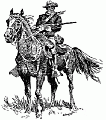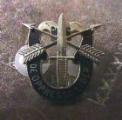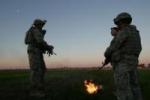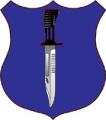
Originally Posted by
Bob's World

"COIN" is an unfortuante term in that it suggests a reaction or response to insurgency. How then, to become more proactive and to either prevent problems altogether, or to minimize the impact if unable to prevent?
I looked to Mao's three phases as a great point of departure for analyzing this problem (and yes, the final, very conventional NVA attack that finally defeated South Vietnam was classic phase III Maoist insurgency). For me, it all makes more sense by adding a phase 0 on the front end of Mao's three phases, and then considering every populace and every governance to be generally within that "peaceful" phase of daily interaction. As governance and popualces drift apart, one moves gradually into Mao's phase I.
Viewed in this light there is clear Civil lead and responsibility for COIN day in and day out. I don't need fancy metrics to know if I am in a community that is in low phase 0, high phase 0, or any other phase. You know it when you see it.
This is why I believe there is some merit at applying our existing MSCA doctrine to the the COIN problem set. It fully recognizes the enduring role of the Civil leadership, and has clear mechanisms for bringing in military support as needed, and peeling it back off as soon as no longer required. I believe this type of mindset would be a major advance in how we execute COIN.
Problem is that we got into this damn GWOT, and now attempt to paint all of our engagement in a wide array of environments as COIN; and it is messy and doesn't square well. Iraq is unique, as we invaded that country, took over the governance, and then facilitated the creation of a new governance. Always tricky business. We went from conventional attack, to occupation, to true US COIN against a resistance insurgency facilitated by UW waged by AQ. Ouch. Then we shifted to FID in support of a fledgling Iraqi government, while still dealing with COIN against a resistance and CT against AQ. We then had mixed in the Iraqi governments own COIN against both revolutionary and separatist insurgent movements and our FID to suupport that. Confused yet?
In Afghanistan we went from UW in support of the Northern Alliance insurgency, to FID in support of the new Afghan government that emerged. We also got into a resistance COIN operation with the Taliban, and CT against AQ who was again waging UW to support the insurgents.
In the Philippines we came in conducting FID and continue to conduct FID, it slips left and right on us every now and then, but we have been able to keep it cleaner as we did not begin with either an invasion or a UW campaign against the existing government.
Bottom line is that this is complex, but by seeking language and definitions that help us better classify the nature of the particular and unique activities, threats, and environment that we are dealing with in any particular case; and by adopting a more holistic concept of the activities that make up insurgency and COIN to allow us be both more proactive and better in our support to Civil leadership, I think we move forward.
Covered a lot of ground in a couple paragraphs, so if I pole vaulted over any key points without making them clear, just let me know and I will address.







 -- but to preclude further confusion I may have inadvertently sown; Ken doesn't say there is a difference between diplomacy and Diplomacy, large or small 'd' -- it is the intercourse between nations and / or the exercise of tact.
-- but to preclude further confusion I may have inadvertently sown; Ken doesn't say there is a difference between diplomacy and Diplomacy, large or small 'd' -- it is the intercourse between nations and / or the exercise of tact.








Bookmarks